
Fish fingers or fish sticks are a processed food made using a whitefish, such as cod, hake, haddock, shark, or pollock, which has been battered or breaded. They are commonly available in the frozen food section of supermarkets. They can be baked in an oven, grilled, shallow fried, or deep-fried.

The Marine Stewardship Council (MSC) is a non-profit organisation which aims to set standards for sustainable fishing. Fisheries that wish to demonstrate they are well-managed and sustainable compared to the MSC's standards are assessed by a team of Conformity Assessment Bodies (CABs).

Birds Eye is an American international brand of frozen foods owned by Conagra Brands in the United States, by Nomad Foods in Europe, and Simplot in Australia.

Nissui Corporation, is a marine products company based in Japan. It had annual revenues of US$5.1 billion in 2014. Until November 30, 2022, the company name will be Nippon Suisan Kaisha Ltd.. The company was established in 1911, and is a commercial fishing and marine product procurement corporation. Its goal is to “Establish a global supply chain of marine products.”
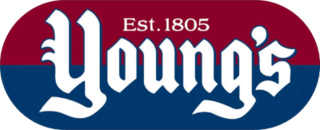
Young's Seafood Ltd. is a British producer and distributor of frozen, fresh, and chilled seafood, supplying approximately 40% of all the fish eaten in the United Kingdom every year. It is headquartered in Grimsby, England.
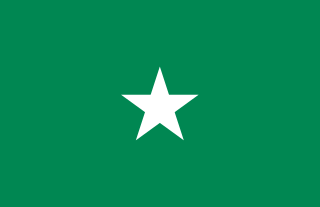
The Ross Group was a British food company founded in Grimsby, England in 1920.

A factory ship, also known as a fish processing vessel, is a large ocean-going vessel with extensive on-board facilities for processing and freezing caught fish or whales. Modern factory ships are automated and enlarged versions of the earlier whalers and their use for fishing has grown dramatically. Some factory ships are equipped to serve as a mother ship.
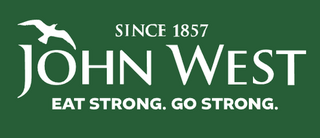
John West Foods is a United Kingdom-based seafood marketing company established in 1857, and currently owned by Thai Union Group of Thailand. The company produces canned salmon and tuna, as well as mackerel, sardine, herring, brisling, anchovies and shellfish.

The Alaska pollock or walleye pollock is a marine fish species of the cod genus Gadus and family Gadidae.

Toyo Suisan Kaisha, Ltd., best known as Toyo Suisan, is a Japanese company specializing in ramen noodles, through its Maruchan brand, seafood and frozen and refrigerated foods. It is the fourth-largest transnational seafood corporation.
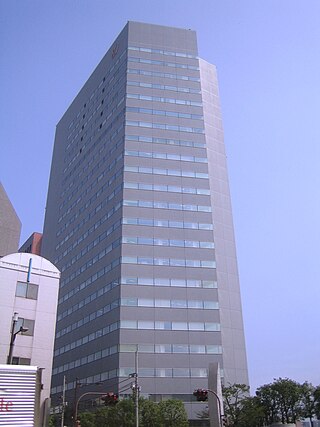
Nichirei Corporation is one of Japan's top producers of frozen foods and a leader in cold storage warehousing, headquartered in Tokyo. Operating through around 80 subsidiaries and affiliates worldwide, its businesses include processed food; logistics; marine products ; meat and poultry; real estate; and biosciences. The company's bioscience work includes antibody development and manufacturing, immunology products, and natural materials processing.
Maruha Nichiro Corporation is a Japanese seafood company, beginning its operation in 1880, when its founder, Ikujiro Nakabe, began a fish sale business in Osaka. The company is the largest of its kind in Japan, with Nippon Suisan Kaisha and Kyokuyo Co., Ltd. as its main competitors.

Thai Union Group is a Thailand-based producer of seafood-based food products. It was founded in 1977, and was listed on the Stock Exchange of Thailand (SET) on 22 November 1994.

Cod and other cod-like fish have been widely used as food through history. Other cod-like fish come from the same family (Gadidae) that cod belong to, such as haddock, pollock, and whiting.

Robert Kinney was an American businessman, fishery entrepreneur, and philanthropist. He served as the chief executive officer of General Mills from 1973 to 1981, previously serving as chief financial officer. He was appointed Trustee Chair Emeritus of his alma mater, Bates College, in Lewiston, Maine and served for 27 years.

Surimi is a paste made from fish or other meat. The term can also refer to a number of East Asian foods that use that paste as their primary ingredient. It is available in many shapes, forms, and textures, and is often used to mimic the texture and color of the meat of lobster, crab, grilled Japanese eel or shellfish.

Frosta Aktiengesellschaft is a frozen food company headquartered in Bremerhaven, Bremen, Germany. The corporation owns production facilities in Germany and Poland, with sales and distribution subsidiaries in the Czech Republic, Germany, Hungary, Italy, Poland and Romania. It had 1709 employees and revenues of Euro 501 million in 2017. FRoSTA is the market leader for frozen food in Germany and one of the largest in Europe.
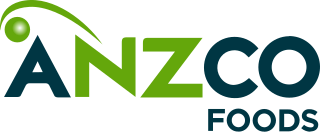
ANZCO Foods or simply ANZCO is a New Zealand meat producer fully owned by the Japanese company Itoham Foods, which in turn is part of Itoham Yonekyu Holdings. In 2016, ANZCO Foods was New Zealand's fifth-largest exporter, with a turnover of NZ$1.5b, and 3,000 employees.
Taneko Suzuki was a Japanese biochemist and nutritionist who was an expert in protein chemistry and development of foods from fish proteins. Her work on transforming pollock into a hamburger-like substance received the Minister of Agriculture, Forestry and Fisheries Award in 1980. She was also honored with the Achievement in Processing and Technology Award of the Japanese Society of Fisheries Science in 1980, and the Director's Medal from the Japan Science and Technology Agency Commissioner in 1985.
Fish-booking is the process of pre-ordering delivery of freshly caught, unfrozen fish, crustaceans and mollusks of ocean, sea or river origin directly from the fishermen, fisheries using a specialized service aggregator or directly. Fish-booking is adherent to zero waste concept aimed at the reduction and minimization of waste in the areas, where it is possible.


















